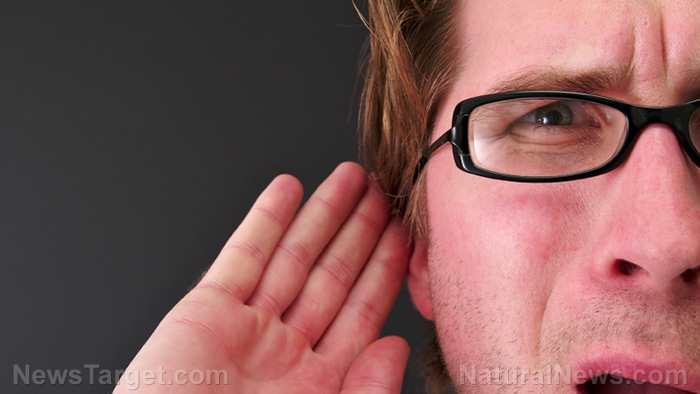A simple solution may preserve hearing loss caused by loud noises
06/26/2018 / By Michelle Simmons

Hearing loss caused by loud noises, such as explosions, firecrackers, or a concert, may be prevented with a simple solution developed by a team of researchers at the Stanford University, Texas A&M University, and the University of Southern California (USC).
In conducting their study, the research team first had to comprehend how hearing loss was caused by loud noises before developing a treatment for it. They created a tool with the use of a novel miniature optics to image the inside of the cochlea, the hearing portion of the inner ear. They then exposed mice to a loud noise similar to a roadside bomb.
They observed that two things occurred after exposure to a loud noise. First, the sensory hair cells, the cells that identify sound and turn it into neural signals, died. At the same time, the inner ear became filled with excess fluid, which in turn caused the death of neurons. This explains why the ears feel full and an insistent ringing sound can be heard after going to a loud concert. These result in hearing loss.
“We were able to see that this buildup of fluid correlates with neuron loss,” said John Oghalai, the corresponding author of the study.
Both sensory hair cells and neurons are essential for hearing. Oghalai explained that even though some sensory hair cells may remain and still function, the brain will not recognize or hear the sound if they are not connected to a neuron.
In their experiment, the sensory hair cells died right away after the loud noise exposure and this was irreversible. On the other hand, neuron damage did not occur immediately, which means that it can still be treated.
The buildup of potassium-rich fluid in the inner ear happened within a few hours after loud noise exposure. In order to reverse the effects of the potassium and lessen the fluid buildup, the research team injected salt- and sugar-based solutions into the middle ear through the eardrum three hours after loud noise exposure. They discovered that treatment with these solutions inhibited neuron loss by 45 to 64 percent. This suggested that the treatment can potentially preserve hearing function.
Oghalai envisioned that the treatment could be used by soldiers after exposure to bomb explosions. He also said that it can potentially be used as a treatment for other inner ear diseases associated with fluid buildups, such as Meniere’s disease.
The findings of the study were published in the journal Proceedings of the National Academy of Sciences of the United States of America (PNAS).
Things to do to protect against noise-induced hearing loss
Hearing loss induced by loud noises typically develops gradually. Although there will be no pain, a ringing sound may occur after noise exposure. You may also have a hard time hearing people talk. These symptoms may go away after several hours, but continuous exposure to loud noises may cause permanent hearing loss. Here are some things you can do to prevent noise-induced hearing loss:
- Stay away from loud or prolonged noises as much as possible. If you are listening to music, turn down the volume. Common noises that might harm your ears include firearms, chainsaw, rock concert, personal stereo players, farm machinery, certain children’s toys, snowmobile, motorcycle, and lawnmower.
- If loud noises are inevitable, use something to protect your hearing. You can use hearing protection devices, such as earplugs, earmuffs, and canal caps. The best kind of hearing protection device is the one that you feel comfortable in. Keep them handy and in good condition.
- You can also take vitamins to protect against noise-induced hearing loss.
Read more news stories and studies on disease treatments by going to Cures.news.
Sources include:
Tagged Under: alternative treatments, cochlea, Cures, ears, hearing, hearing loss, hearing loss treatments, hearing preservation, loud noise, noise, noise-induced hearing loss, preserving hearing




















